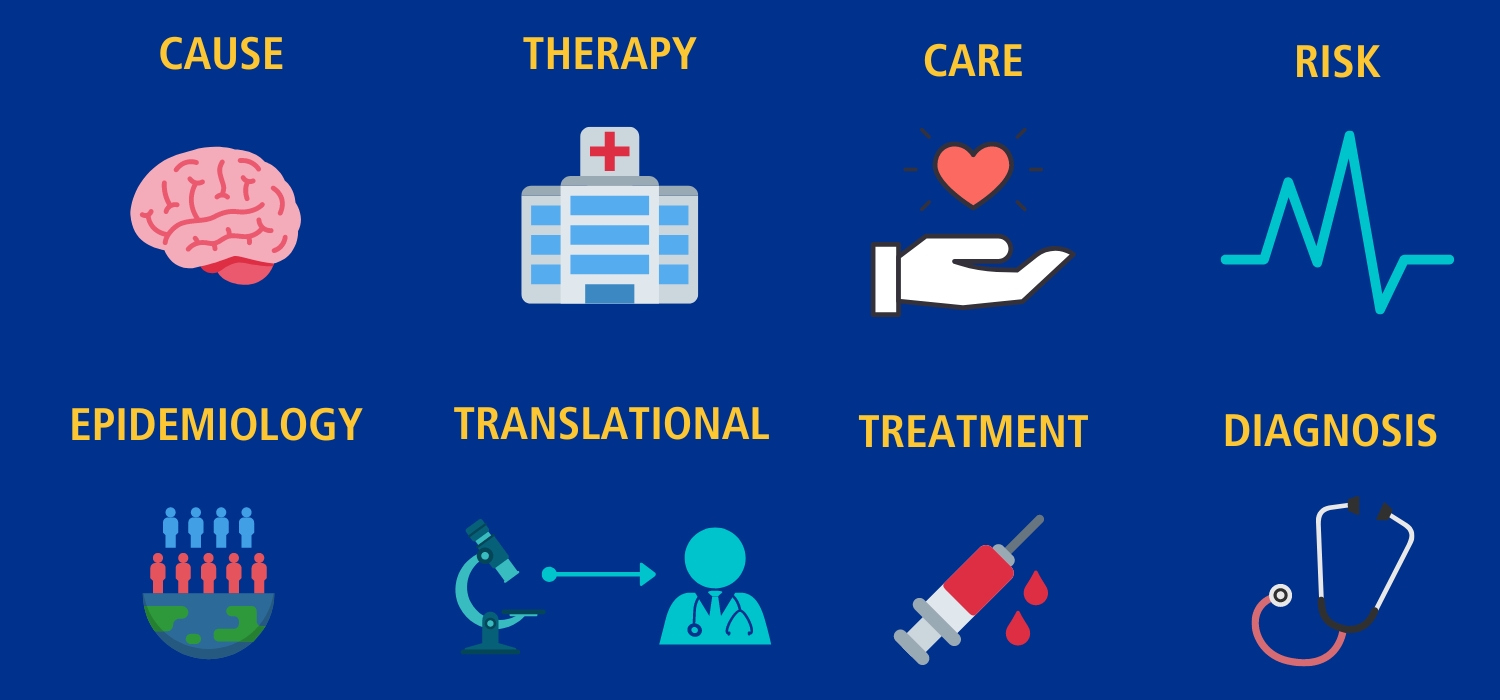Learn about the Alzheimer Society Research Program
The Alzheimer Society Research Program is one of Canada's most innovative hubs for dementia research, helping the brightest minds in the field spark their work from idea to impact. Since 1989, we have invested over $83 million in grants and awards toward innovative dementia research nationally.

What is the Alzheimer Society Research Program?
The Alzheimer Society Research Program (ASRP) is one of Canada's most innovative hubs for dementia research, helping the best and brightest minds in the field spark their work from ideas to impact. This program is changing dementia research in Canada.
Since the program's start in 1989, we have invested over $83 million in grants and awards toward innovative research that brings us closer to a future without Alzheimer’s disease and other dementias.
The Alzheimer Society Research Program has two goals:
- encourage researchers to explore radical new ways to advance our knowledge of dementia
- improve the quality of life for people living with dementia, their families and caregivers
Read about our 2025 funding recipients and learn more about the researchers and projects making an impact on dementia in Canada.
How can researchers get funding from the Alzheimer Society Research Program?
The ASRP offers funding in four categories. These are Doctoral Awards, Postdoctoral Awards, New Investigator Grants, and Proof of Concept Grants.
In 2019, the Alzheimer Society Research Program shifted into an open competition that focuses on varying funding priorities: Basic science research, clinical, health services and population health. Applications in other aspects of dementia research, such as cause, prevention, risk, technology, social science and psychosocial interventions are also considered.
See the infographic below for the program's eight funding priorities.

Examples of research funded through the Alzheimer Society Research Program
Through the support of this program, dementia researchers across Canada were able to work on projects like:
Dr. Ghazaleh Eskandari-Sedighi

"Elucidating the Role of human CD33 protein in Alzheimer's disease pathogenesis."
— Dr. Ghazaleh Eskandari-Sedighi, University of Alberta
Read more about Dr. Dr. Eskandari-Sedighi' research on elucidating the role of human CD33 protein in Alzheimer's disease pathogenesis.
Supporting the Alzheimer Society Research Program
The Alzheimer Society Research Program is a collaborative effort. The Alzheimer Society of Canada would like to thank the following:
Our donors
None of the research funded through the Alzheimer Society Research Program could be possible without your support. If you are interested in supporting dementia research through this program, please donate today.
Our funding partners
Thank you to our funding partners who expand the reach and impact of our national research program.
Brain Canada Foundation
Canadian Institutes of Health Research – Institute of Aging
Fonds de recherche du Québec (FRQ)
Research Manitoba
Saskatchewan Health Research Foundation
Alzheimer Societies across Canada
We also extend our thanks to the Alzheimer Societies who generously contribute to the Alzheimer Society Research Program each year:
- Alzheimer Society of Alberta and Northwest Territories
- Alzheimer Society of British Columbia
- Alzheimer Society of Manitoba
- Alzheimer Society of New Brunswick
- Alzheimer Society of Newfoundland and Labrador
- Alzheimer Society of Nova Scotia
- Alzheimer Society of Ontario and Federation Partners (Brant-Haldimand Norfolk-Hamilton Halton; Chatham-Kent; Cornwall and District; Dufferin County; Durham Region; Elgin – St. Thomas; Grey-Bruce; Hastings – Prince Edward; Huron County; Kenora / Rainy River Districts; Kingston, Frontenac, Lennox and Addington; Lanark Leeds Grenville; London and Middlesex; Muskoka; Niagara Region; Ottawa and Renfrew County; Oxford; Peel; Perth County; Peterborough, Kawartha Lakes, Northumberland and Haliburton; Sarnia-Lambton; Sault Ste. Marie and Algoma District; Simcoe County; Sudbury-Manitoulin North Bay and Districts; Thunder Bay; Timmins-Porcupine District; Toronto; Waterloo-Wellington; Windsor-Essex County; and York Region)
- Alzheimer Society of Prince Edward Island
- Alzheimer Society of Saskatchewan
- Federation of Quebec Alzheimer Societies and Federation Partners (Bas-Saint-Laurent, Centre-du-Québec, Chaudière-Appalaches, Côte-Nord, Estrie, Gaspésie Îles-de-la-Madeleine, Granby et régions, Haut-Richelieu, Lanaudière, Laurentides, Laval, Maskoutains-Vallée des Patriotes, Mauricie, Montréal, Outaouais québécois, Québec, Rive-Sud, Abitib-Témiscamingue, Sagamie–Saguenay–Lac-St-Jean, Suroît, and Vallée de l'Or)
